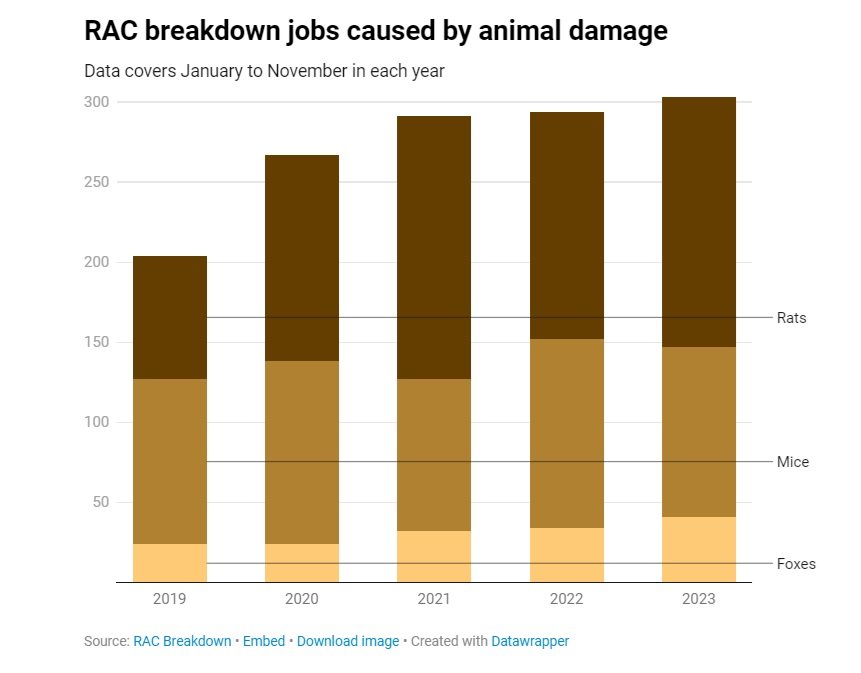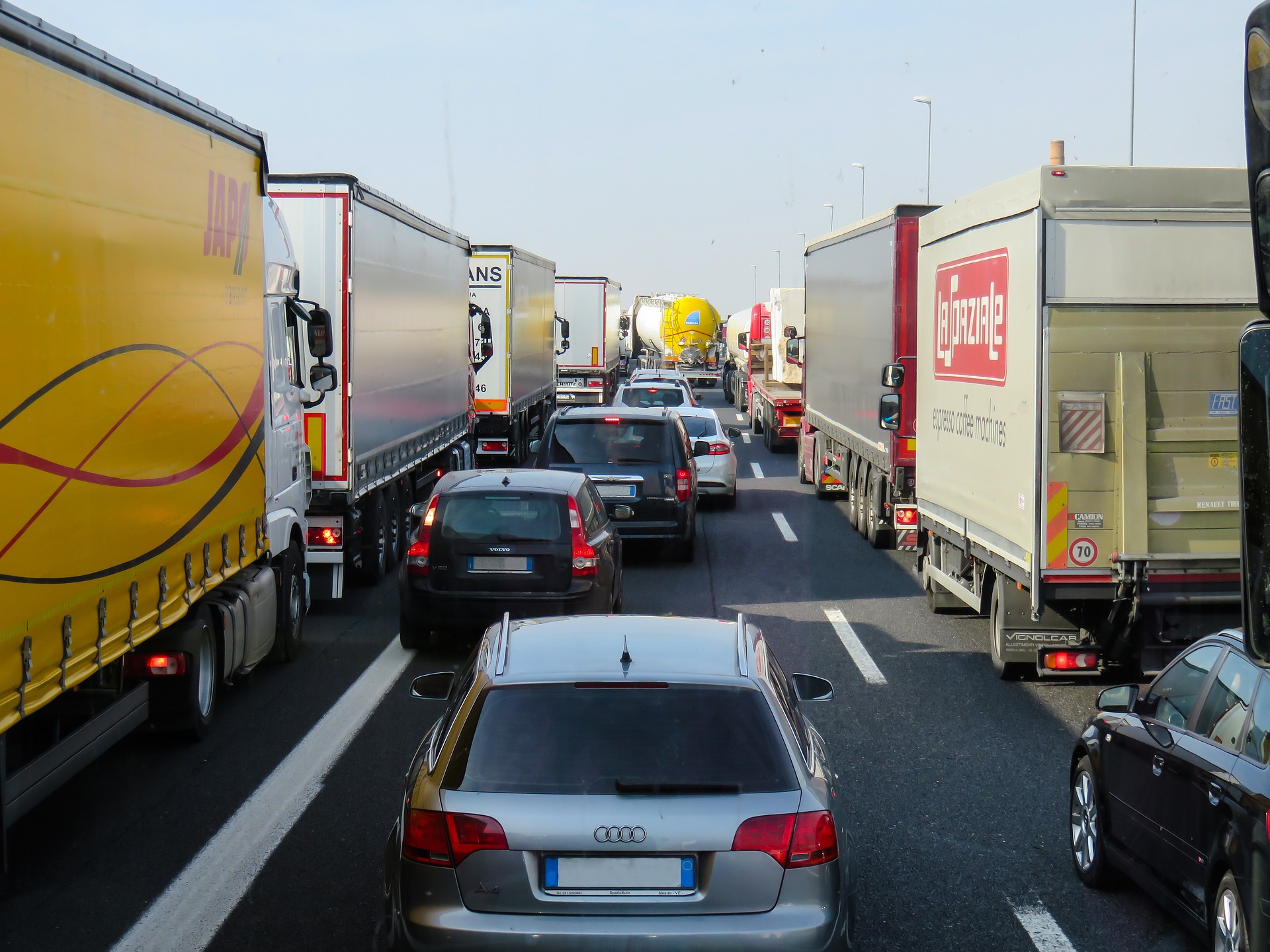Everyone knows a car breakdown can mean a nasty repair bill, but new data from the RAC reveals that it’s not always a head gasket or a catastrophic engine failure that can cost you hundreds of pounds. Strangely, it can sometimes be very small creatures that cause very big problems.
In fact, the RAC has seen record numbers of mice, rats and foxes ‘surprising’ customers in 2023 and causing serious damage to their vehicles, after reviewing thousands of patrol breakdown reports dating back to 2016.
Breakdowns caused by rodents have risen by 55% from 196 incidents in the first 11 months of 2018 to a record 303 over the same period in 2023, according to the motoring organisation. The problem worsens significantly as the seasons change, averaging a 66% increase from summer to autumn over the last five years.
An appetite for automobiles
This year, patrol reports show rats had the biggest appetite for automobile parts and caused half (51%) of all animal damage incidents by gnawing fuel hoses, infesting engine bays and damaging headlights. Patrols also reported numerous cases of foxes chewing speed sensor wiring, windscreen wiper blades and brake hoses underneath cars.
Food left inside or in the vicinity of an unattended vehicle is a sure-fire way to attract unwanted visitors. Open bags of pet feed stored in garages can lure mice and rats into a vehicle’s piping where they’re drawn to their very own ‘biting point’ – peanut and soy-based oils and waxes used on parts including diesel injector wires, gearbox insulation and primer bulbs.

Baby it’s cold outside
If left standing and unattended for long periods, vehicles can even become home to rodents and lost pets alike as they seek a bit of warmth and security.
RAC patrol Nick Isaac, who works around the South West of England, once found a squirrel using an air filter as its pantry. Nick said: “The car had lost power and had an odd smell. When I lifted the bonnet and revved the engine the air filter moved like it was being sucked towards the engine. It turned out a squirrel had been taking nuts from a bird feeder and storing them in the air box, restricting air flow to the car.”
One patrol attended a Porsche where 10 mice had made a nest under the scuttle panel at the bottom of the windscreen, while another was called to retrieve a more exotic creature: a baby pet python which had taken up residence behind a wheel trim. The snake had gone missing from the member’s home and was drawn to the car’s warm brakes. When the patrol pulled the trim off, there was the python all cosy and coiled up.
Alister Hughes, an RAC patrol in Cornwall, remembers an incident from this year where a cat managed to disconnect a battery in a Peugeot van. The curious cat crawled onto the engine, disconnecting the quick release battery terminal in the process. Alister said: “The van wouldn’t start, but the biggest giveaway was all the leftover fur and the neighbour telling me they’d been calling their cat the previous evening!”
Minimising the risk
RAC Breakdown spokesperson Alice Simpson said: “Many of us are used to seeing the occasional rat or mouse on the street, but finding one in your car is not only a nasty shock but often the cause of very unwelcome and expensive damage. Unfortunately, incidents like this are more common than drivers might expect, particularly over the winter months when animals look to take shelter from the cold conditions.
“To reduce the risk of animal damage, check your car if it hasn’t been driven for a week or more. The best advice is to make sure no food – for pets or humans – is left inside. Also check for unusual smells in the vehicle and be mindful of any dashboard warning lights that don’t disappear after a minute or two. Any foodstuff in garages should be kept in airtight containers or locked in metal bins.
“If you suspect your vehicle has sustained animal damage, whether that’s chewed cables, clogged air filters or a nibbled diesel priming bulb, you should contact a reputable mobile mechanic or use the RAC’s Approved Garage Network to find a local garage that provides quality repairs. Car insurance does cover animal damage, but it’s worth checking before you claim to see if the damage justifies the expense.”





